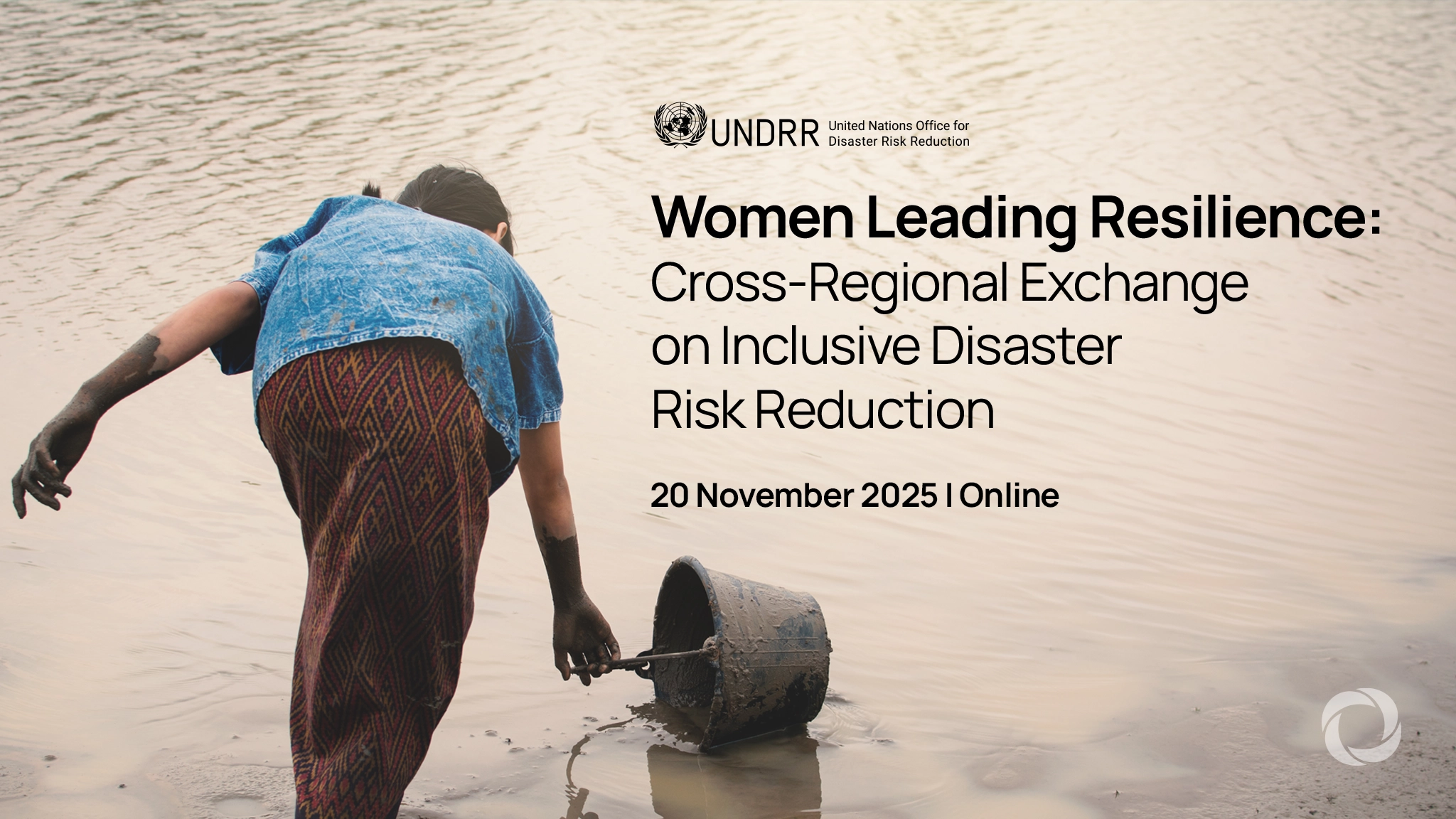📅 20 November 2025
Online
Resilience is not gender-neutral. Research shows that gender inequality exacerbates disaster risk and impacts for women and girls. Intersectional risk factors, such as living in poverty, having a disability, living in a conflict zone, remote or rural area, can exacerbate gendered risks.
Women are often at the forefront of disaster preparedness, risk reduction, response, and recovery, yet they remain underrepresented in decision-making roles. Significant gaps persist in the meaningful inclusion of women and people of diverse genders within formal disaster risk reduction (DRR) mechanisms and governance systems. While women often take on informal leadership roles, their capacities, knowledge and contributions are often adequately recognized, valued or remunerated.
The guiding principles of the Sendai Framework recognize the need for a gender perspective to be integrated into all DRR policies and practices, and highlights the importance of women’s participation and leadership.
The Gender Action Plan to support implementation of the Sendai Framework for Disaster Risk Reduction 2015-2030 (Sendai GAP), which was launched in 2024, aims to accelerate progress towards the mutually reinforcing goals of gender equality and the prevention and reduction of disaster risk by ensuring DRR efforts are gender-responsive, and promote and support women’s empowerment and leadership. Specifically, Key Objective 4 of the Sendai GAP, focuses on strengthening the meaningful participation, empowerment, and leadership of women and gender equality stakeholders in DRR governance.
This webinar will facilitate the exchange of views and good practices among women leaders in disaster risk reduction across different regions with speakers from Uganda, Pakistan and the Caribbean. Speakers include:
- Hon. Lillian Aber., Minister for Relief, Disaster Preparedness and Refugees, Government of Uganda
- Ms. Elizabeth Riley, Executive Director, Caribbean Disaster Emergency Management Agency (CDEMA)
- Ms. Abia Akram, Chief Executive Office, National Forum of Women with Disabilities, Islamabad, Pakistan; 2023 WIN DRR Rising Star Award Winner; and Chair of Global Forum on the Leadership of Women with Disabilities (GFLWD)
- Ms. Monica Sander, Representative of LAC Women’s Network for DRR; Founder of The Undivide Project; Visiting Faculty at The Earth Commons at Georgetown University; and Adjunct Professor of Law at Georgetown University Law Centre; and a Fellow at the Federation of American Scientists
They will reflect on leadership journeys and the pathways that have enabled women to participate in and lead the shaping of DRR policies and decision-making processes; and advocate for the accelerated implementation of the Sendai Gender Action Plan (Sendai GAP) through storytelling, collective reflection, and forward-looking action, reinforcing momentum towards the 2025 WIN DRR Awards and shaping the future direction of WIN DRR, particularly in advancing women’s participation and leadership in accelerating the implementation of the Sendai Framework and Sendai GAP towards 2030.

